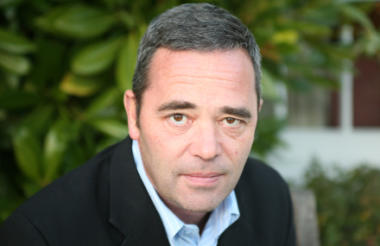The Institute of Fundraising should investigate and possibly revoke the membership of large charities including the British Red Cross, Macmillan Cancer Support and NSPCC, a former IoF chief executive told the organisation's AGM.
Speaking from the floor at the Institute's AGM in London this afternoon, Professor Stephen Lee (pictured), a former chief executive of the fundraising membership body, called on current chair and chief executive Richard Taylor and Peter Lewis to take action and possibly remove a number of large charities for breaching the Code of Fundraising Practice and, by extension, the IoF's own Code of Conduct, in the last 12 months.
Citing a number of sections from the IoF's articles of association and the recent spate of FRSB adjudication reports condemning the fundraising of many of the organisations, Lee called on both the charities and individual members who work for those charities, to be investigated.
"Bearing in mind all of the above articles and the adjudications by the FRSB, I would ask what steps have been taken to remove from membership through disciplinary procedure, the following organisations: the British Red Cross, Macmillan Cancer Support, NSPCC, Oxfam GB, NTT and Listen.
"And to what extent has the board investigated the actions of any individual members who hold positions of responsibility with respect to those breaches, within those organisations?"
Lee, a professor of voluntary sector management at Cass Business School, said that it was "more than just about setting the Codes, I would also say that it's about applying those Codes".
He also said that Richard Taylor, who as well as chairing the IoF is currently interim director of fundraising at Macmillan Cancer Support, might wish to defer due to a potential "conflict of interest".
Lee said that he wasn't necessarily calling for the charities to be removed, but that the Institute's trustees "have a responsibility to instigate an investigation to remove the above organisations and some of the individuals within them" for breaches of the Code of Conduct.
Peter Lewis, chief executive of the IoF, said that he was happy to speak to Lee "offline about this", to which Lee responded: "I don't want to talk offline. This is an AGM."
Lewis went on to say that ultimately the IoF didn't wish to duplicate the FRSB's work of investigating charities accused of breaching the Code of Fundraising Practice.
"When complaints are made about organisations, we have an agreement with the FRSB that, as they have investigatory resources we don't have, they investigate those complaints and they come to their findings. They then deliver sanctions, which they think fit."
Lewis said that the IoF board has no legal remit to investigate charity members, only individual members. "That's the basis that we have. It's the agreed process that we have to pass over all investigations that are organisational to the FRSB. That's the system we've followed for the last year, as in a self-regulatory system; there's no point in duplicating the work of the FRSB."
Lee said that Lewis didn't understand his organisation's own articles of association. Lewis said that Lee could take that up with solicitors Bates Wells Braithwate if he wanted.
Lewis told Civil Society News that the Institute and he would report back on this at the next AGM.
Later, IoF chair Richard Taylor issued a statement: "The IoF’s process for dealing with complaints is clear. If a complaint has been made about an organisational member breaching the Code of Fundraising Practice, that complaint is investigated by the FRSB. When the FRSB rules that a fundraising organisation has breached the Code it works with those organisations to correct any activity and put appropriate measures in place. If an organisation rejects the FRSB’s findings or fails to change practices as a result of an adjudication the IoF will consider taking disciplinary action. It is important that correct procedure is followed to avoid duplication and confusion about roles and responsibilities.
"From Thursday, the new Fundraising Regulator will take responsibility for investigating and adjudicating complaints against fundraising organisations.”









